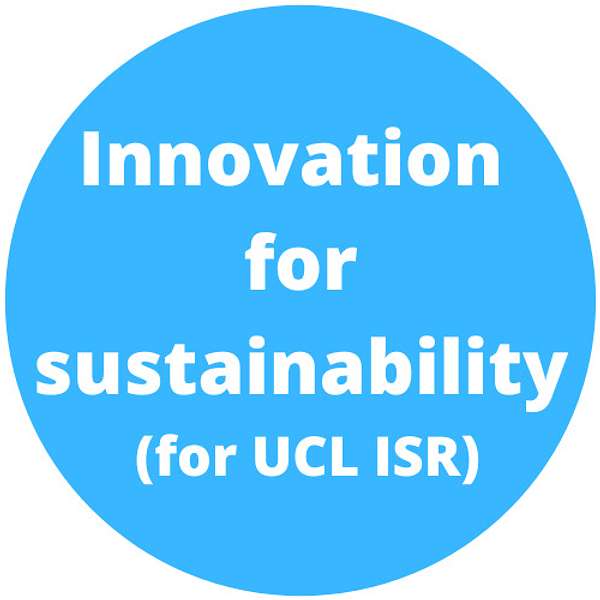
Innovation for sustainability (for UCL Institute for Sustainable Resources Masters)
Innovation for sustainability (for UCL Institute for Sustainable Resources Masters)
Hans Unkles
Hans Unkles is a boat builder and fisherman. He is responsible for the first (and so far only) fully electric fishing vessel in the UK, based out of Tayvallich on Scotland's West Coast.
He converted a standard 2-person diesel 'workhorse' into the Lorna Jane, now powered by solar and grid electricity only.
You can read the story here and I recommend the hour-long documentary here.
Hans went from school to a boat-building apprenticeship. Over the next 40 years he continued building and refitting boats, alongside various kinds of fishing. He decided to electrify a boat because of: fear of climate change; he wants to make a navigable way for others to act; he wants fishing to be around for long-term; and, also he saw the potential of the emerging technology.
Some things to pull out:
-His fear of climate change is a fear of not being prepared, not being ready for what might happen.
-An electrified boat has many advantages, including:
>Much, much lower maintenance and repair costs, as there are fewer moving parts to go wrong.
>Much lower fuel costs (diesel vs sun + grid electricity).
>No longer have 10-12 hours of rattling and noise from the engine ("a physical benefit you cannot put a value on").
-However, the upfront investment in conversion is higher than just refitting as a diesel boat. Partly the existing tech has a 100 year head start (a long time to find all the efficiencies). Plus, fishing vessels doesn't need to pay the environmental cost of using diesel.
-He decided to not have funding that required a university research team as well, as he wanted full control. (Very sensible!)
-The technical side of refitting the boat for a new power source was difficult, but only in the sense of a difficult engineering and craft problem. But it could benefit from the on-going revolution happening in electrification, especially on batteries. There is a spillover from the automotive industry going electric.
-The biggest challenge of doing something novel was the regulation and bureaucracy. All of officialdom was set up for diesel vessels, and the Lorna Jane did not fit into the pre-existing boxes.
-The technical side was an example of 'bricolage' (assembling something new from stuff that is around already). in this case, the elctric motor was from a submarine.
-Hans loves bodging! Just making something work (and not caring too much about how it looks). This is a really important part of early-stage invention and innovation -- Silicon Valley was (partly) borne in the garage of Dave Packard (of Hewlett Packard).
-Hans one thing for policy-makers: after-care for those who are breaking new ground.
-The way to shift behaviour is rarely to guilt people (as environmentalists often do) but to show what is possible with real examples from peers.
-Hans deliberately fishes in a way that protects the long-term of the sea-life in his area. (He alternates between crabs, scallops and langoustine.) He sees that method as having a long future. "Fishing doesn't really work if it is not sustainable."
This is part of a series of interviews about innovation for sustainability conducted for the UCL Institute for Sustainable Resources, as a contribution to a module in this Masters. You can find out more about these interviews, and the module, here.